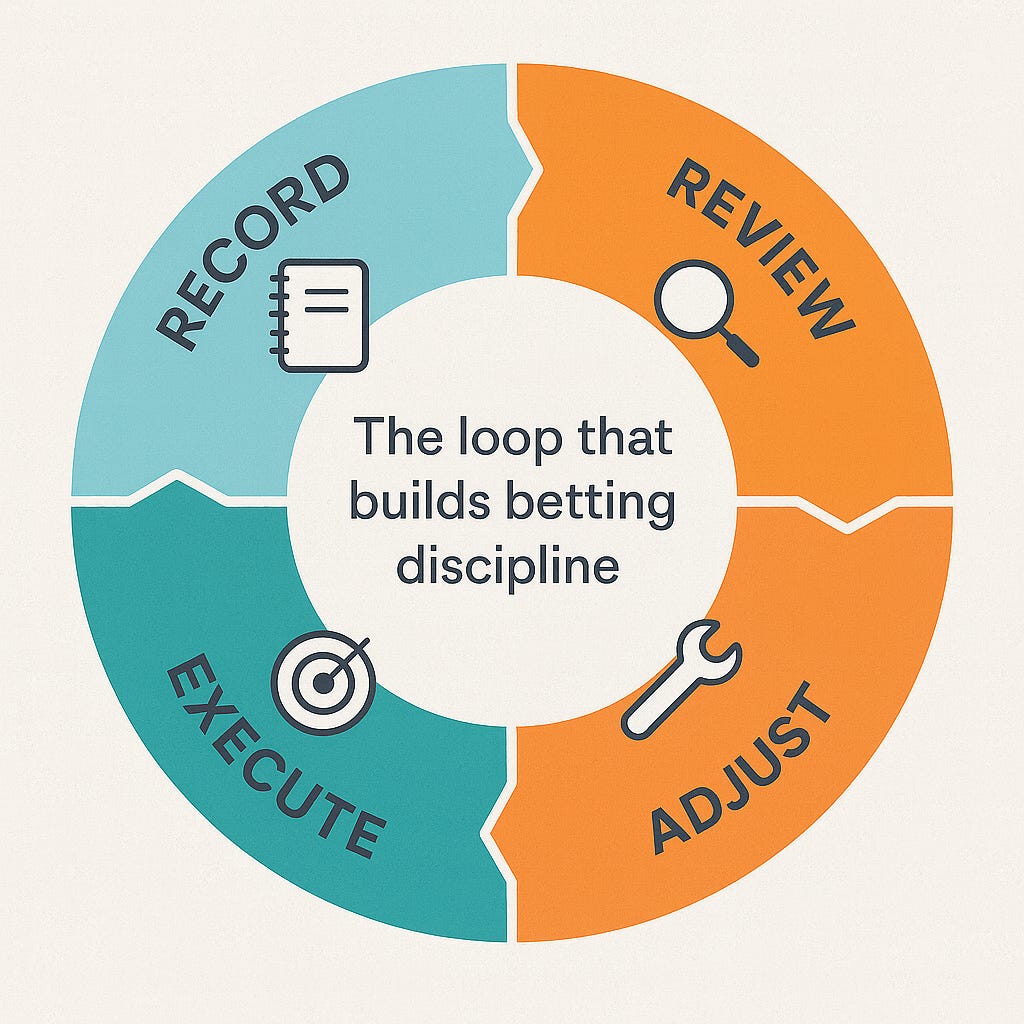Why Smart Bettors Look Back Before Moving Forward
How reviewing your past bets can sharpen tomorrow’s strategy
Betting Is About Memory and Discipline
Every bettor knows the thrill of a winning weekend and the sting of a painful loss. But here is the question that separates casual punters from disciplined ones: how often do you actually look back at your bets, study them, and learn from them?
It is tempting to just move on to the next match or tournament, telling yourself you will make it back next time. The real edge in betting often comes from keeping detailed records and reviewing them with brutal honesty.
Record-Keeping: Your Built-In Betting Coach
Logging every bet is not just about knowing your win rate. It is about spotting patterns that the emotional side of your brain will miss.
Identify profitable markets. You might be consistently winning on early-round tennis matches but leaking money on finals.
Spot emotional bets. That random greyhound punt because you were bored will be remembered in your records.
Understand market changes. When rule changes or format tweaks alter the dynamics of a sport such as Champions League draws, NFL pass-heavy seasons, or slower tennis courts, your historical data is your early warning system.
"Your bankroll has a memory. Do you?"
The Risk of Betting Forward Without Looking Back
Sports evolve slowly and if you are not paying attention you will be betting yesterday’s game in tomorrow’s market.
Examples:
Tennis court speeds. Grass and hard courts have generally slowed, favoring baseline all-court players over serve-and-volley specialists.
Football formats. New Champions League structures reward wins far more than draws, reducing the historical frequency of stalemates.
Rugby and NFL scoring. Tactical shifts, fitness improvements, and weather patterns can all move totals lines over time.
Without reviewing past bets, these shifts slip under the radar until your ROI quietly erodes.
Good Bet vs. Bad Bet Is Not Just About Winning
A winning bet can still be a bad bet if the reasoning was flawed. A losing bet can be good if the logic and value were sound.
Ask yourself after each wager:
Did I have a valid edge?
Was the market price fair or better?
Would I make the same bet again with the same information?
The goal is not perfection. It is consistency in your decision-making process.
"A winning bet can still be a bad bet. A losing bet can still be a good one."
What Poker Can Teach Bettors
Poker pros do not just track profit. They track who they are profiting from and how. They choose games with the highest expected hourly return even when the difference is subtle.
You can apply the same principle in betting:
Focus on the leagues, tournaments, or markets where your edge is proven.
Avoid the ones where your historical record shows consistent losses no matter how fun they are to bet.
Turning Review into Action
Reviewing bets without changing your approach is like watching game film without adjusting your strategy. After each monthly or quarterly review:
Cut down on the sports or markets where your results are consistently negative.
Increase your exposure in areas where you are beating the market.
Set small experimental budgets to test new strategies, rather than risking your core bankroll.
Over time, this cycle of review and adjustment becomes second nature, and your betting sharpens automatically.
Building a Personal Betting Playbook
Your bet history is not just a record. It is a blueprint for your own custom playbook. In it, you can store:
Historical performance by sport, league, and market
Notes on environmental or format changes that affected results
Profiles of specific teams, players, or conditions where you find an edge
Situations you will never bet again because the data shows they cost you
This is how betting stops being random and starts feeling like a well-prepared game plan.
"The smartest bet you make is the one you learn from."
🎯 The Bottom Line
The best bettors are not only forward-looking. They are archivists of their own betting history. By recording every bet, reviewing it with a clear head, and adjusting to market shifts, you create a feedback loop that compounds your edge over time.
That is exactly why Bet Journal exists. It gives you an effortless way to log every wager, track your results across sports and markets, and review patterns that would be hard to spot otherwise. Your betting history becomes searchable, filterable, and actionable so that each new bet is built on the lessons of the last one.
Before you jump into the weekend card, take a pause. Pull up your past month of bets in the app. Ask yourself: What is working? What is not? What has changed? Your bankroll will thank you.



